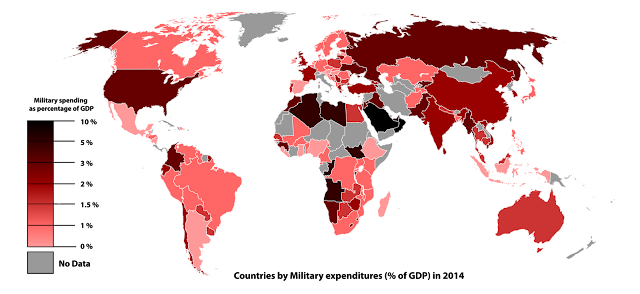Posted 08 Sep 2016 20:04 Updated 08 Sep 2016 20:10
BANGKOK: Thailand's military-appointed lawmakers on Thursday (Sep 8) signed off on a nearly US$124 million budget hike for defence spending, while funds for education and infrastructure were pared back.
The army seized power from the civilian government in 2014, saying it was forced to act to end bloody street protests and rampant corruption.
The army, navy and air force will receive a two per cent raise taking next year's spending to 210.7 billion baht (nearly US$6.1 billion), according to the budget endorsed by the hand-picked National Legislative Assembly.
The budget comes into effect next month and runs until September 2017. It is the third straight year of rises in state spending for defence since the coup.
Thailand's royalist military has for decades been at the centre of politics, battering down the country's nascent democratic movements.
Each coup has broadly been followed by a handsome budget hike, while the civilian leaders who have governed intermittently have also lavished cash on the powerful military hoping to curry favour.
The budget for education was given a 4.7 per cent haircut to 493 billion baht (US$14.1 billion) and transport was cut by two thirds from US$136 billion baht to $63.5 billion.
"This budget will be spent based on laws and rules to maintain the country's fiscal discipline," Wisanu Krea-Ngam, deputy prime Minister, said in televised comments at the end of the vote, promising the budget allocation had been carefully considered.
Experts say the budget follows a pattern that has seen defence spending creep up from around US$5.7 billion a year before the coup.
"Perhaps the rise does not appear to be breathtaking but the amount of spending is remarkable - really more than ever before," said Paul Chambers a Thailand-based expert on the military, adding it was unclear how the spending had been justified.
After years of impressive growth, Thailand's economy is faltering, mired in high household debt, stuttering exports and low consumer confidence. The army's influence in Thai politics has been embedded in a new constitution written by junta appointees.
- AFP/ec
Original post: channelnewsasia
The usual western propaganda they fail to mention that Thailand has one of the highest education budget and one of the lowest military budget in the world. (See below)
I also support that the Armed forces budget should be increase to $8 billion as the current budget is insufficient.
Government Budgets: Education vs Military Spending [infographic]
Each country has its own spending needs that vary with the priorities of the size of the population, age of the population and political involvements of that country. Some of the largest expenditures of governments are the military, health care and education. At a time when cutbacks are being made across the world in order to reduce countries deficits and attempt to stop the world slipping back further into recession, there is the concern about how countries actually spend their money. How do they decide what sectors receive the most money? Each country decides what is important in relation to its size, population of the country, the age of those residing in the country and on the political involvements of the country. You would like to think that your country would spend more on Education than the likes of Warfare, and while some countries do, others place warfare spending above that of spending on health and education.
This information supplied by Visual Economics and presented through this graphic by Coupon Code highlights these priorities on some of our world’s major countries.
Source: urbanpeek
Countries by Military expenditures (% of GDP) in 2014
Source: wikimedia


